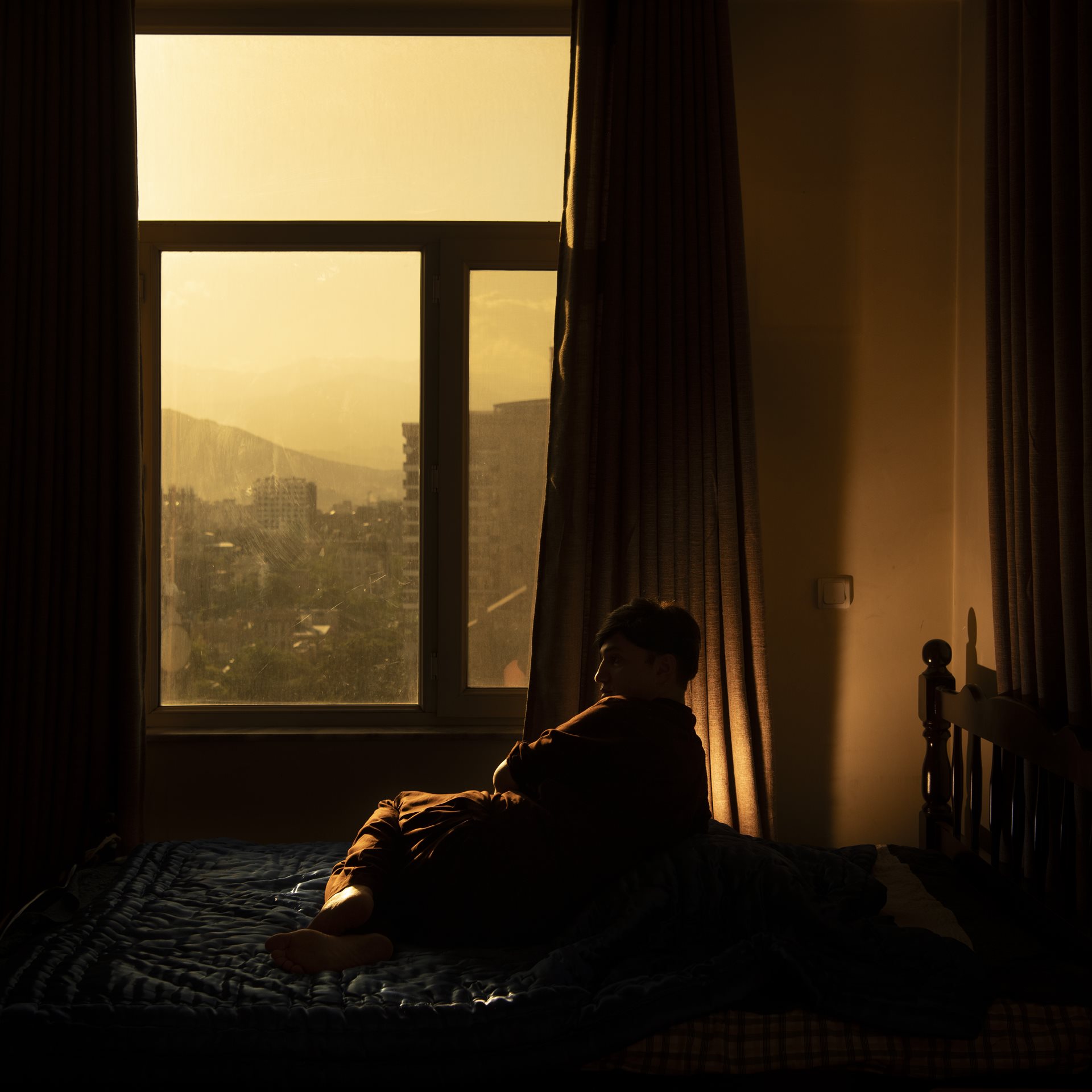Samir (30), a trans woman in Kabul, dresses as a woman in private, but presents as a man in public, due to the danger and stigma of being LGBTQI+ in Afghanistan. Samir has faced arrest and torture by the Taliban, and pressure from family members to marry.
When the Islamic fundamentalist Taliban returned to power in Afghanistan in 2021, 20 years after a US-British military coalition ousted a previous Taliban government, they initially announced they would be more tolerant than the previous Taliban regime, giving women an active role in Afghan society, "within the framework of Islamic law". Instead, they have slowly eroded women’s rights.
The Taliban government denies women access to education beyond elementary school, bars them from most work outside the home, and in some regions forbids them from leaving home without a male guardian, or with their face uncovered. The spaces where women once gathered freely – schools, parks, gyms, beauty salons, and offices – are now off limits. Women are allowed to work in healthcare, but as they cannot enter higher education no new female doctors or midwives will qualify. This will mean that, as years go by, women’s access to medical care will become increasingly precarious or intrusive, as in some regions male medical staff are prohibited from treating women unaccompanied by a male member of their family.
The Taliban has increasingly arrested and detained women for violation of their policies. The first two years of their rule saw both direct and indirect political protest (such as intentionally wearing a hijab “incorrectly”). However, organizers of protests were detained and tortured, and an August 2024 law banned women’s voices from being heard in public. Resistance has continued, but organized street protests are now rare.
Despite these restrictions, women in Afghanistan find subtle but powerful ways to resist. Their defiance unfolds quietly behind closed doors: in homes, secret classrooms, and in private celebrations.
Kiana Hayeri traveled through seven Afghan provinces to make this work, speaking to more than 100 women and girls from all walks of life. She and women’s rights researcher Melissa Cornet (both of whom have previously lived in Afghanistan) used a network of trusted relationships to create the portraits in partnership with the subjects, ensuring their safety and agency. “Even if women were not comfortable showing their faces,” Hayeri explains, “they still have individuality in the photos.”
Are you a photographer and/or passionate about press freedom? Sign up for our newsletter to stay updated on our annual contest and to hear about exhibitions near you.

